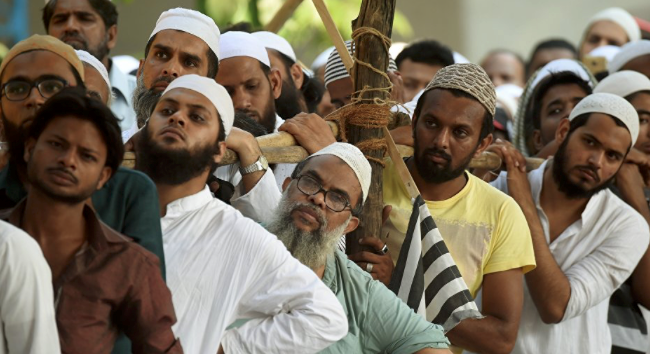Radiance News
Dec. 13: The Cabinet of the BJP government in Assam has recently approved a socio-economic survey aimed at assessing the indigenous Muslim population residing in the state. This important decision comes after Chief Minister Himanta Biswa Sarma’s government officially recognized five communities as “indigenous Assamese Muslims” a year and a half ago.
The responsibility of conducting the socio-economic assessment of these “indigenous” Muslim communities will be entrusted to the Directorate of Minority Affairs and Char Areas, formerly known as the Directorate of Char Areas Development, as stated in a cabinet note.
According to the 2011 Census, more than 34% of Assam’s population identifies as Muslim, making it the third largest among all Union Territories and states, following Jammu and Kashmir and Lakshadweep. With a total population of 31 million in the state, over 10 million are Muslims. However, out of these, only around 4 million are Assamese-speaking native Muslims, while the rest are Bengali-speaking immigrants of Bangladeshi origin.
The announcement of plans for the socio-economic assessment of indigenous Muslim communities was made by the government of Assam in October, highlighting its commitment to the comprehensive socio-political and educational upliftment of the state’s indigenous minorities.
The classification of the Goria, Moria, Jolah (including those in tea gardens), and Desi and Syed communities as native Assamese Muslims in July last year was a response to the longstanding demand of these communities. The state government made this decision based on the recommendations of seven sub-committees that were formed earlier.
The classification of the Assamese-speaking Muslim communities holds great significance as it aims to address the concerns raised by these communities. They have expressed feelings of being marginalized and overlooked by Bengali-speaking Muslims, despite being the original inhabitants of Assam. These indigenous Assamese Muslims argue that they have not received adequate benefits, despite sharing a common history, language, and cultural practices with the native Hindus, which sets them apart from the Bengali-speaking migrants.
While the socio-economic survey is aimed to assist the state government in implementing measures to uplift and empower the recognized indigenous Muslim communities in Assam, it may be used to drive a wedge within the Assamese Muslim community and divide them into Bengali and Assamese vote banks. The state government claims that this initiative will bring positive changes by addressing the grievances of these communities by fostering a more inclusive and equitable in Assam; there is apprehension that the “indigenous Assamese Muslim card” will be used to create a vote bank that supports the BJP. By indulging in vote bank politics, the party with a difference will then stand guilty of failing to “walk the talk”.




